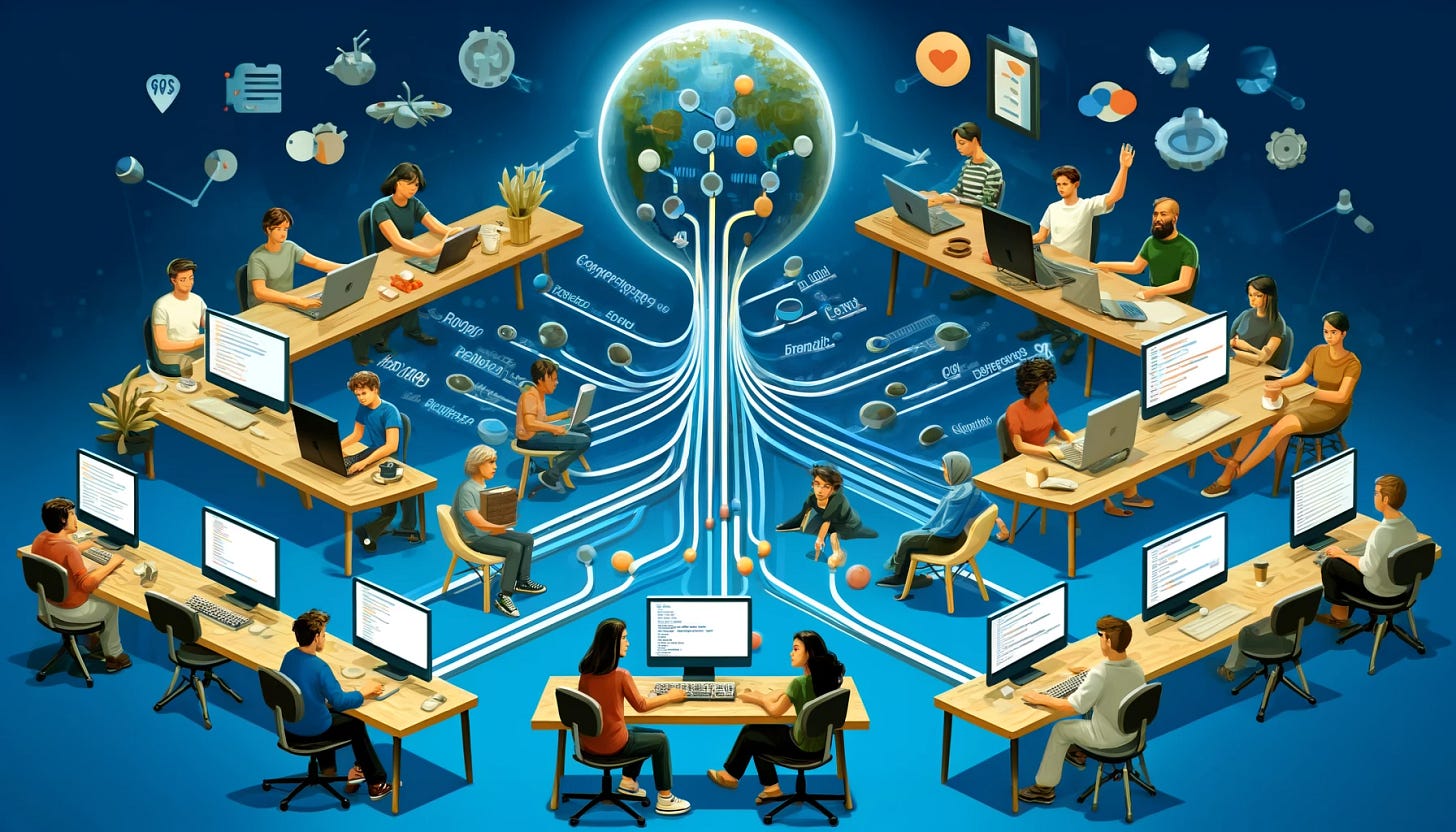Code Collaboration with Git and GitHub 💻✨🛠️
Master Git and GitHub: Your Ultimate Guide to Seamless Code Collaboration and Version Control
In the modern tech, seamless code collaboration is not just a luxury but a necessity. Git and GitHub stand as the twin pillars that support this essential process.
What is Git?
Git is a distributed version control system that tracks changes in source code during software development. Created by Linus Torvalds in 2005, Git allows developers to collaborate without overwriting each other’s work. Its design promotes non-linear development through robust branching and merging.
Key Features of Git:
Change Tracking: Git meticulously records changes to your codebase, enabling you to revisit previous states and understand the history of your project.
Branching and Merging: Branches allow developers to work on separate features or bug fixes independently. Once completed, these branches can be merged back into the main codebase without conflicts.
Version Management: Git manages different versions of your code, making it easy to switch between them as needed. This feature is crucial for maintaining stable releases while developing new features.
Why Git Matters: Imagine you are an artist, and every stroke you make on a canvas is recorded. If you ever make a mistake or want to revert to an earlier design, you can do so effortlessly. Git does this for code, ensuring that every developer can work confidently, knowing that no work is ever truly lost.
What is GitHub?
GitHub, launched in 2008, is a web-based platform that hosts Git repositories. It provides a centralized place where developers can store, manage, and share their code. GitHub’s user-friendly interface and powerful tools facilitate seamless collaboration.
Key Features of GitHub:
Online Repository Hosting: GitHub hosts your Git repositories in the cloud, making them accessible from anywhere. This feature is particularly useful for remote teams.
Collaboration Tools: GitHub offers tools like pull requests, code reviews, and issues tracking, which streamline the collaborative process and ensure code quality.
Integration with Other Tools: GitHub integrates with a wide range of development tools and services, from CI/CD pipelines to project management platforms, enhancing your workflow.
Why GitHub Matters: Consider GitHub as a bustling marketplace for code. Developers from around the world come together, share their projects, contribute to others’ work, and innovate collectively. This collaborative environment accelerates learning and development, pushing the boundaries of what’s possible.
The Synergy of Git and GitHub
When used together, Git and GitHub offer an unparalleled experience in code management and collaboration. Here’s how they complement each other:
Git:
Tracks changes in code.
Allows branching and merging.
Manages code versions.
GitHub:
Hosts Git repositories online.
Provides tools for collaboration.
Integrates with other development tools.
Together, they help teams manage and share code efficiently, ensuring that everyone is on the same page and that the codebase remains clean and functional.






